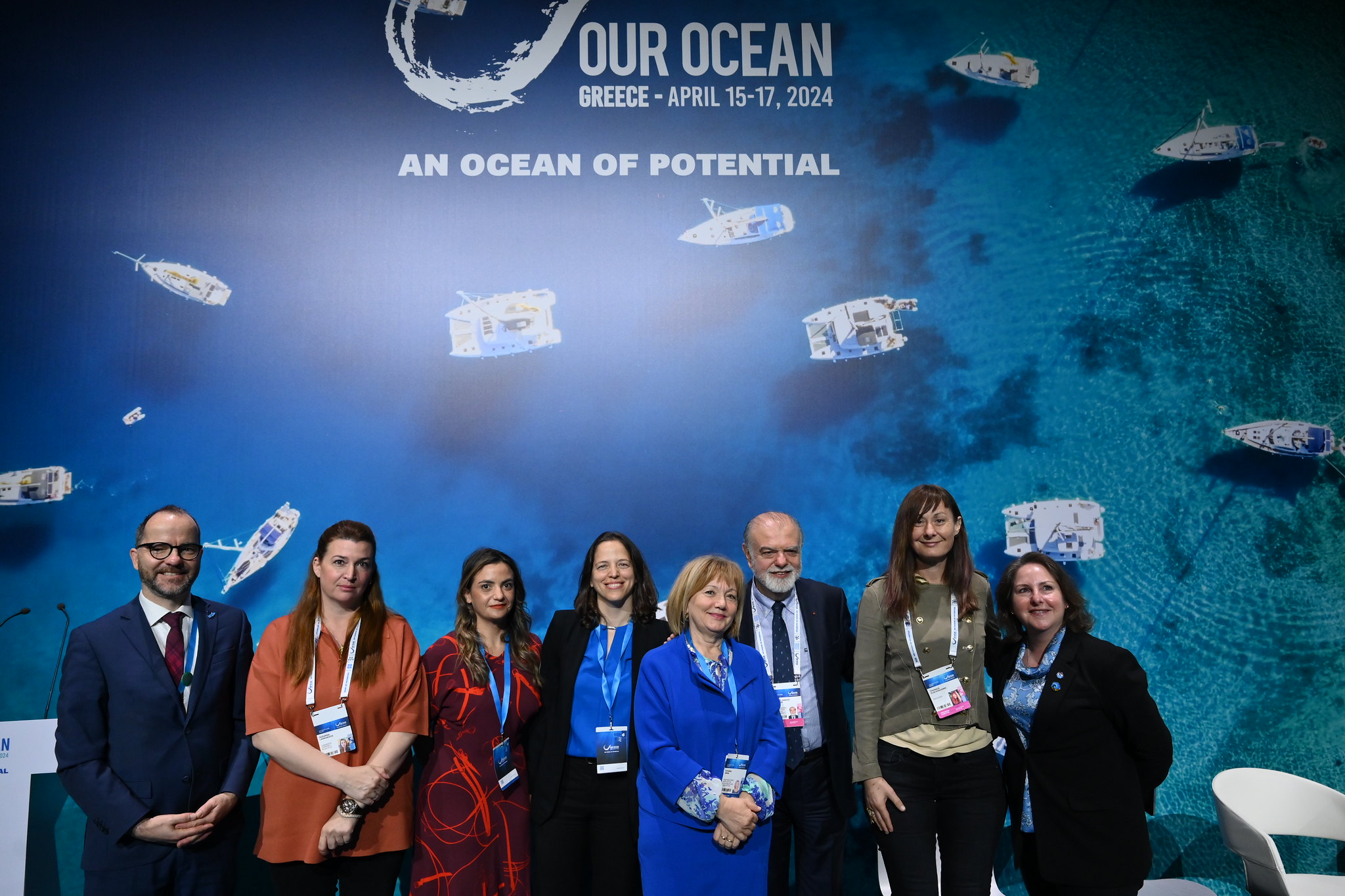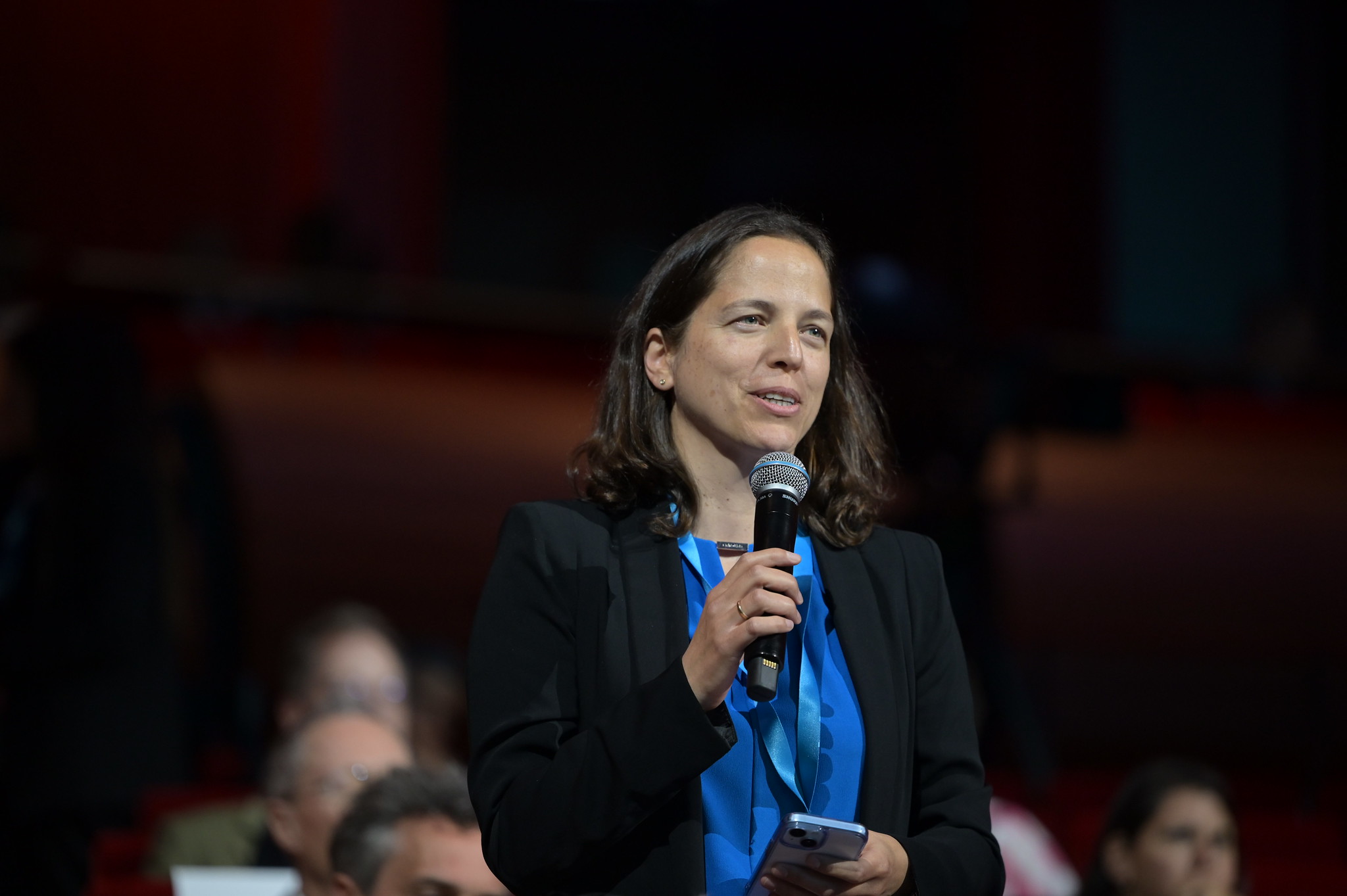
Last week, our actions were presented at two key moments of the Our Ocean Conference in Athens:
Ms Mercedes Muñoz Cañas, Head of the Marine Biodiversity and Blue Economy Program at the IUCN Centre for Mediterranean Cooperation, presented BeMed’s commitment. It was a great time to present the ongoing BeMed+ project, which has a budget of 6.7 million euros. Mercedes introduced the project leaders: Beyond Plastic Med, IUCN Med Med (General Secretary of BeMed), Surfrider Foundation Europe, Institute for Nature Conservation in Albania (INCA) and Notre Grand Bleu.
The BeMed+ project aims to reduce plastic pollution in the Mediterranean by supporting Mediterranean stakeholders, facilitating the sharing of experience within this network of stakeholders, and implementing pilot actions in two targeted regions with distinct characteristics (the tourist area of Monastir, Tunisia, and the Shkumbin River watershed, Albania).
It comprises 3 components:
This component includes:
– Financial support for actions on the ground through calls for projects (annual call for micro-initiatives [10 KEUR per project] and a specific call for projects for the Mediterranean islands [100 KEUR per project]).
– Collaborative work between large companies, scientists, and associations within the BeMed Business Club to feed into and debate the plastic strategy of companies in order to steer them towards sustainable solutions, and to carry out pilot projects to reduce their use of plastic.
This component includes:
– Leading a community of practice bringing together the laureates of the calls for projects, with the aim of facilitating the sharing of experience and tools and collaboration through meetings.
– Enhancing the value of the network and promoting the replication of effective actions (participation in international meetings, conferences to announce the winners, communication, project closing event).
This component includes:
– From 2024 to 2025, carrying out background studies (scientific data, main sources of plastic leakage, initiatives and good practices deployed in other cities, political levers and brakes, social and economic needs to overcome plastic dependency and limit leaks).
– From 2026-2027, based on the results of the studies, an action plan will be consolidated and implemented. It will cover the tourism and sports sectors and support for municipalities in improving waste management.
The BeMed+ project benefit from the generous support of the Fonds Français pour l’Environnement Mondial, the Prince Albert II of Monaco Foundation, the Didier et Martine Primat Foundation, and the Aether Fund for Future Generations.

BeMed was a co-host in a side event organized by the Mediterranean Information Office for Environment, Culture and Sustainable Development (BIMED), entitled “Our Ocean Side Event”.
“As negotiations for an international legally binding instrument on plastic pollution are ongoing, the roundtable seeks to chart the course of progress in the global fight against marine plastic pollution and shed light on the transformative actions taken to shift from a throwaway mindset to embracing sustainable alternatives. This insightful event will illuminate the challenges faced and will explore the future steps that hold the key to lasting change”.
Ms Mercedes Muñoz Cañas, Head of the Marine Biodiversity and Blue Economy Program at the IUCN Centre for Mediterranean Cooperation, represented BeMed at the round table. It was an opportunity to present what is done by BeMed in the fight for a plastic-free Mediterranean Sea. Panelists were able to share their innovative approaches to tackling marine plastic pollution, exchange views on the most important factors for success, and share advice on overcoming obstacles.
